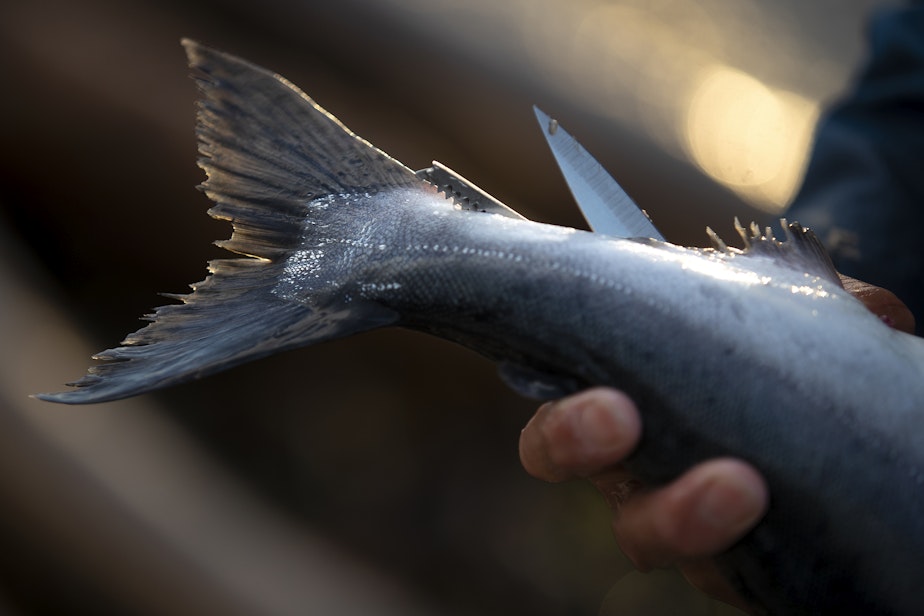Washington tribes get $39.4 million for salmon habitat restoration, culvert removal efforts

Ten tribes from around Puget Sound will receive a total of $39.4 million from the federal government to advance salmon population restoration projects.
The money, provided by the National Oceanic and Atmospheric Administration, will help replace old culverts, pipes or tunnels that carry a stream or creek underneath roadways, which obstruct fish from traveling between their spawning waters and the sea.
The Tulalip Tribes will receive $10.7 million of that new funding, which will be used to create access to more than 128 miles of upstream fish habitat by replacing 38 culverts identified in the Snohomish and Stillaguamish basins.
“When it comes to salmon recovery … it's a lot easier to conserve existing habitat than it is to restore habitat,” said Ryan Miller, director of treaty rights and government affairs for the Tulalip Tribes. "And in a lot of these cases, these barriers are preventing fish from getting to what we would call pretty good habitat.”
The Tulalip Tribes plan to finish these projects by 2030.
Sponsored
RELATED: New culverts in Washington state cost $20 million each. The DOT needs to replace 400 of them by 2030
Also in 2030, the Washington State Department of Transportation has its own deadline to finish updating culverts on state-owned land. The $7.8 billion project is in response to a 2001 lawsuit aimed at protecting declining fish populations.
But the state is just one entity governing how streams and waters are redirected. Utility companies, private property owners, and local governments also operate their own culverts. Successfully updating the passages will require their buy-in, too.
The Restoration for Skagit River System Cooperative, which provides natural resource services for the Sauk-Suiattle and Swinomish tribes, will receive $3.3 million to fix seven culverts that block fish passage in the Skagit and Samish watershed. Part of that money will fund a habitat restoration program for youth.
Most of the projects approved for funding from the National Oceanic and Atmospheric Administration are aimed at replacing existing culverts with more fish friendly ones. But for the Yakama Nation’s part, some of the $9 million earmarked for the tribe will be used to remove culverts and install a bridge for fish to pass under. The tribe also plans to use the money to relocate a section of state highway Route 207, which currently restricts fish passage.
Sponsored
RELATED: Why the billions spent fixing Washington culverts may not be saving many salmon
“The Yakima Basin used to be one of the highest contributing systems to the Columbia basin for salmon population,” said David Blodgett III, program manager for Yakama Nation Fisheries. “But when we started developing needs like we have for irrigation of our agriculture, it really affected the salmon populations.”
Blodgett said the Yakama Nation believes it's important to work alongside local industry and state and local governments, instead of being embroiled in legal fights. It’s a consensus that many tribes have come to.
Currently, the Yakama Nation is building a new helix fish passage program that will work in tandem with clearing away outdated fish barriers, to restore fish populations before it’s too late.
“We're not going to sit here and pretend that we don't have difficult times to come,” Blodgett said. "We know that things like climate change are catching up to us… it's gaining on us quicker than we're able to invest and contribute into the future.”
Sponsored
Blodgett pointed out that this year’s snowpack – which many local industries, people, and fish life depend on — was lacking.
“We're thinking about the resilience to handle it.”




